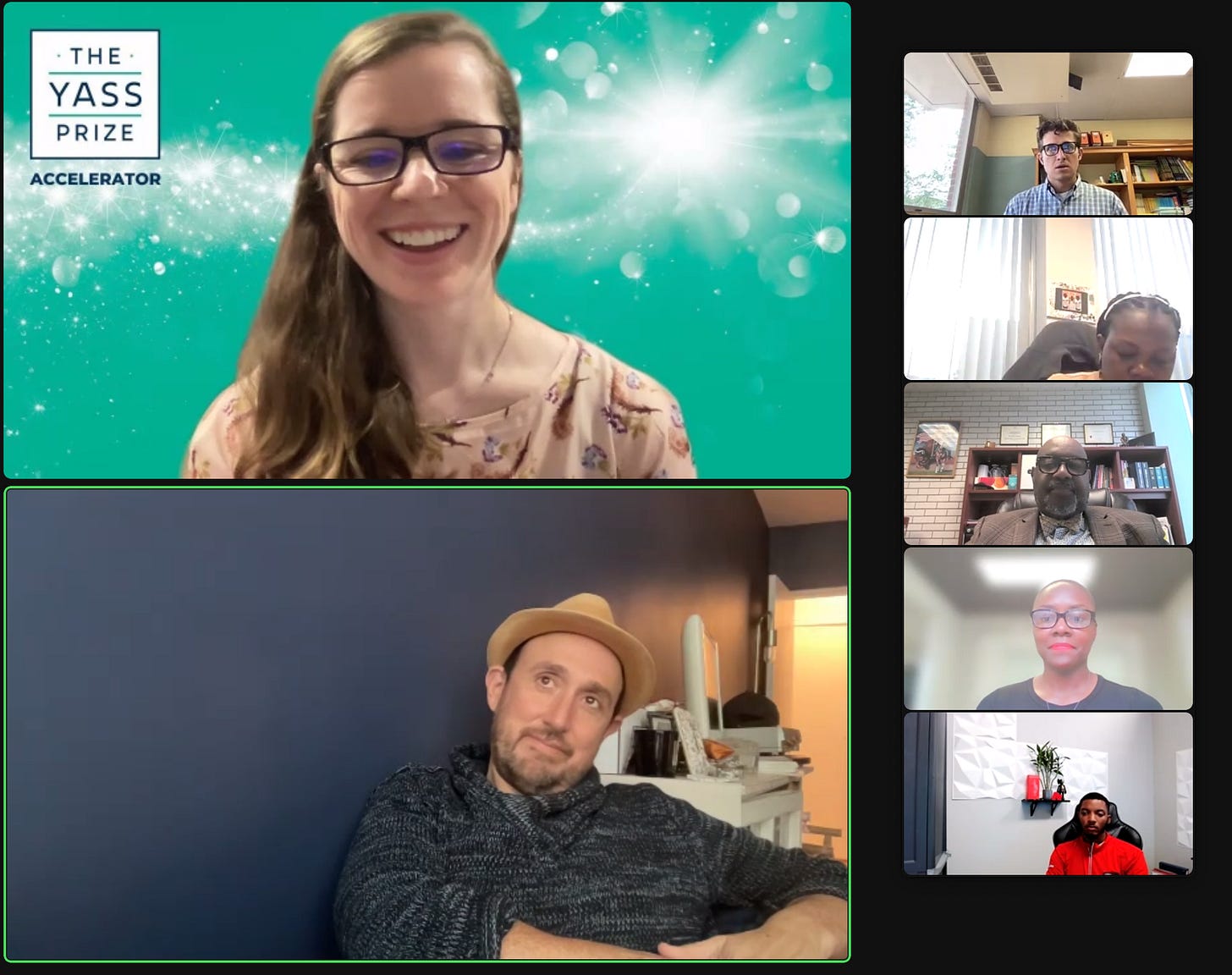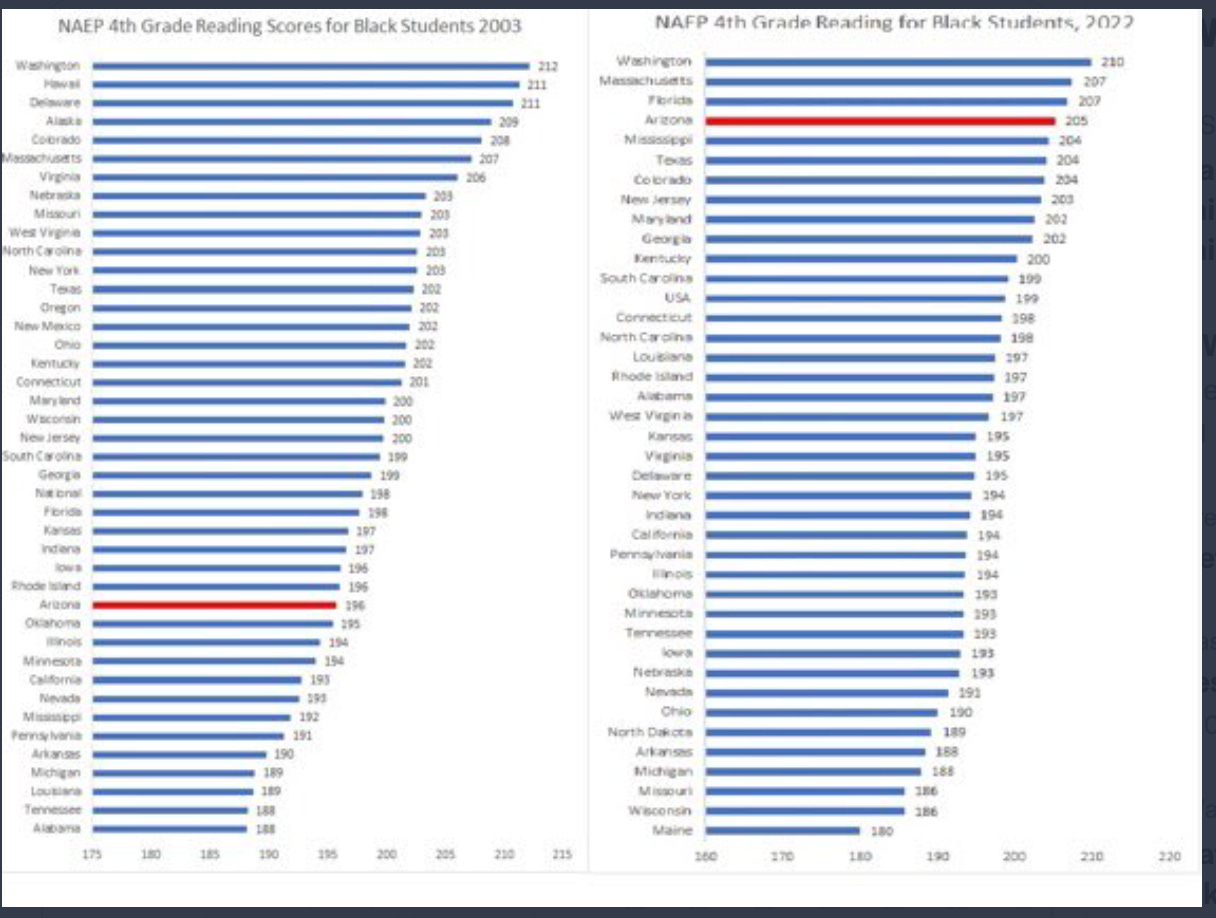Democracy What?
Oh What A Night, Week, or Maybe Month?
At the risk of offending any of my friends who may think differently, Tuesday was, as Alexis de Tocqueville would say, “Democracy in America.” Democracy is what happened. The self-governed voting. It was the action we took. It was THE ballot. It wasn’t ON the ballot.
The distinction is important if we really care about Civics and our children (and adults) understanding the foundation of the United States, its differences from all other countries, its strengths, and how after almost 250 years we are still in existence, the best and most free country in the world.
Political theory and constitutional law were my specialty and the disciplines still make me a little giddy. While others are watching The Crown (and I don't disparage you at all), I’d rather listen to the late David McCullough on Audible, or peruse my old worn notebooks.
I really believe the media should take up that hobby as well. The sheer volume of incorrect characterizations and fear-mongering about our nation - from both sides - feels like a lot of ignorance to me, willful or not. That’s one reason I’m so happy to see Khan Academy and the National Constitution Center teaming up to create a semester-long High School digital Civics course, available to anyone, but hopefully it will guide all educators. They’re working on more and lower grades too, but it’s a start.
Seeing the Public Voting for Power over Education Was and Is Extraordinary
A reporter this week actually asked me what evidence I had that parents and those who support their right to direct their child’s education were the driving force behind many of the outcomes this past week. Regardless of one’s political affiliation, the election outcomes show that the parent power movement that gained steam as a result of bad pandemic education policies by too many education and elected officials gave way to a new, bi-partisan resurgence in parents having control of their own children’s (OWN eg THEIR) education. And it’s not just about the culture “wars.” It’s about a parent’s fundamental right to decide how they - their students - are educated.
How do I know? What’s my evidence? It’s just really stunning when someone asks that of someone who has been watching this daily for years but never uses that lens for a union person or anti-choice advocate. But I digress.
The evidence is in the results and the commentary that has been taking place in literally thousands of blogs, social media sites, forums and local communities (which some of us do indeed wonk out following!). Tocqueville would be gratified that his commentary on the uniquely American association has begun to address the single biggest deficiency of our country - its education system. Tocqueville believed that our finding and building associations were not only unique for the nation but critical to the success of both democratic government and the well-being of citizens. In 1840 he wrote:
"In the United States, as soon as several inhabitants have taken an opinion or an idea they wish to promote in society, they seek each other out and unite together once they have made contact. From that moment, they are no longer isolated but have become a power seen from afar whose activities serve as an example and whose words are heeded."
So Where Did They Vote?
There are still reams of data to examine but there is no question that parents around the country scored majority victories Tuesday by voting for viable candidates who made clear statements about supporting families in their right to choose the best education for their children were clear winners.
In some cases it was bi-partisan. Florida Governor Ron DeSantis and many state legislators scored huge margins of victory involving Democrats, Latinos and minority voters. Florida’s share of people with choice is larger than any other state. More than 160,000 exercise private school choice. More than 360,000 attend charter schools. Another few million utilize the state’s virtual schools or other public schools of choice.
Georgia Governor Brian Kemp vowed to keep and grow his state’s programs. Democrat Governors like J.B. Pritzker and Josh Shapiro were re-elected or elected respectively in Illinois and Pennsylvania with education scholarship programs usually anathema to their political supporters being made a visible commitment of theirs.
More analysis and outcomes will no doubt bear out the same. If you’re skeptical, that’s okay. But consider when the unions spend literally hundreds of millions of dollars in political ads, contributions and get-the-vote-out efforts (as well as members canvassing regularly to homes and forums nationwide) while parents just show up, there’s no way you can conclude that parents and an oversized impact despite their normally small political footprint. Viva La Parent Power!
Innovation Stands to Benefit, too
If Congress flips the House to the party that the unions do not expect to tow their line - eg. the Republicans - those ever increasing regulations and mandates on states, school districts and charter schools are sure to get challenged. The increasing might of the federal purse strings and government by regulation has dampened state innovation efforts, including charter school growth.
In states, the push for allowing competency-based education, and personalized and project-based learning that is growing in the petri dish of microschools, charter schools and districts that feel free enough to experiment could grow dramatically, as can the wide variety of virtual and new approaches to educating that only comes when control is literally at the school level.
The 2022 Yass Prize winners this year have reminded us of this regularly since they were chosen this fall. As Forbes Editor and Chief Content Officer Randall Lane told them in one of the Yass Prize Accelerator sessions, creating unique communities where students learn, where we build a worker base and an informed citizenry depends on education entrepreneurs.
“The education system is so big and so bureaucratic it needs people who are coming up with new ideas and trying things; it’s so important. If I see a thread that is undergoing disruption - food tech, ed tech whatever - it’s the willingness to not move incrementally, the willingness to come up with some new idea. You innovators are so important to this country - things you pilot that you can scale. That’s the whole name of the game.”
I’ll leave you with that to whet your appetite. Explore the Yass Prize winners on your own. You won’t be sorry.
Why it all Matters
Let’s not forget that just two short weeks ago, the Nation’s Report card delivered a huge blow to our false sense of complacency about education. Most people simply thought failure was isolated to “poor” people, or minority communities. Such bunk. In fact, while people with less advantage always get screwed by bad education and segregated housing patterns, the vast majority of US students are ill-prepared for the future and lack proficiency in the basics.
This news should be a wake-up call for all of us but you would think that education leaders themselves would beat their chests and call for major change. You’d be wrong. Not only did the heads of the two major teachers unions completely ignore the results, but the American Federation of School Administrators, an affiliate of the AFL-CIO, blamed the drop in students on a report issued 40 years ago that was a wake-up call to a nation whose economic declines were squarely connected to failing education even at that time!
The 1983 Nation at Risk Report was a wake-up call that set the modern education reform movement in motion, but the group said the report “Emerged from a faulty premise and offered incorrect prescriptions.” They are talking of course about proposals to raise standards in education, open the teaching profession to experts in their fields and not just people who got a certification for attending ed school, provide parents more options and hold schools accountable for results.
It was those things, starting in the late 80s that finally took root in the 90s and have continued since. And those NAEP scores? They are higher for students in states that offer precisely those prescriptions. It’s still not enough. But we know what makes the numbers rise.
Just further evidence that parents, not administrators, should be making the decisions.
Friends, it’s been my mission and that of the organization I’ve run for almost 30 years to be resiliently focused on expanding education opportunity and innovation. Whether you swing red or blue or something else, if you’re committed to the same principle, we stand together. Our board members, team members and supporters disagree on many things but on this we are aligned. So I cheer decisions made on Tuesday in many areas not because of political ideology but because of education ideology. Life will get a lot easier for people wanting to help students achieve because they will have the power to do.
More about that next week when my readers will get a glimpse into the new Parent Power Index. Watch this space!
All the best - Jeanne




